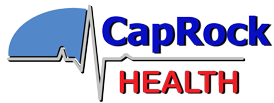October is Breast Cancer Awareness Month, a time when the world unites to raise awareness about breast cancer and the importance of early detection and treatment. Below is some general information that can help reduce the burden of this terrible disease. If you have specific concerns, it’s always best to discuss any questions with your doctor.
Understanding Breast Cancer
Breast cancer occurs when cells in the breast start to grow uncontrollably. If left unchecked, these rapidly growing cells can cause a lump or tumor in the breast and even spread to other parts of the body where they affect the function of vital organs. It affects both sexes, but it is far more common in women. Early detection significantly improves outcomes and increases survival.
Early Signs of Breast Cancer
- Breast Lump: Perhaps the most well-known sign, a lump in the breast or underarm area may represent breast cancer. While not all lumps are cancerous, any new lump should be evaluated by a healthcare professional.
- Changes in Breast Size or Shape: Be vigilant for changes in the size or shape of one or both breasts. This includes swelling, dimpling, or distortion.
- Skin Changes: Look out for skin changes on the breast, such as redness, scaliness, or puckering. These alterations may signify an underlying issue.
- Nipple Abnormalities: Changes in the nipples, such as inversion (when it turns inward), discharge (other than breast milk), or unexplained pain or tenderness, warrant investigation.
- Breast Pain: While early breast cancer is usually painless, persistent, unexplained pain in one breast should be assessed by a healthcare provider.
- Swollen Lymph Nodes: Enlarged lymph nodes under the arm or in the neck may indicate the spread of breast cancer.
Remember that these signs do not always indicate breast cancer, but they should prompt further evaluation to rule out any concerning conditions. It’s also important to note that not all early breast cancer causes any of the symptoms listed above and are only detected by a physician’s examination, self-breast exams, mammograms, etc.
The Importance of Breast Cancer Awareness Month
Breast Cancer Awareness Month serves as a reminder that while breast cancer is a formidable disease, it’s one we can influence through early detection and regular screenings. Here’s how you can contribute:
1. Spread Awareness:
Educate your friends, family, and community about breast cancer, its risk factors, and the importance of early detection. Encourage the women in your life to follow recommended screening guidelines.
2. Beware of Family History:
There are often genetic contributions to the development of breast cancer. It is helpful to know if any of your relatives have experienced breast or gynecologic cancers as a family history of such cancers can change the recommended screenings.
3. Self-Exams:
Perform regular breast self-exams at home. These simple checks can help you become familiar with your breast tissue and detect any changes promptly.
4. Clinical Exams:
Schedule regular breast exams with your healthcare provider. These professional exams can identify potential issues that might not be noticeable during self-exams.
5. Mammograms:
If you are of the appropriate age or have specific risk factors, discuss mammography screening with your healthcare provider. Mammograms can detect breast cancer at its earliest, most treatable stages – before it even causes symptoms.
6. Healthy Lifestyle:
Obesity, sedentary lifestyle, smoking, and alcohol use have all been shown to increase your risk for breast cancer.
7. Support Research and Awareness Programs:
Consider supporting breast cancer research initiatives and awareness campaigns through donations or volunteer work. Your contribution can help save lives.
Final Thoughts
In conclusion, Breast Cancer Awareness Month reminds us of the importance of early detection and regular screenings. By knowing the early signs of breast cancer and taking proactive steps, we can make a significant impact in the fight against this disease. Together, we can work towards a future where breast cancer is detected early and treated effectively, ultimately saving lives and spreading hope.

